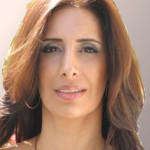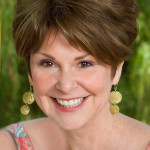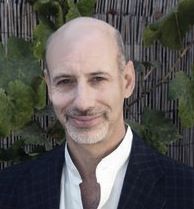 Anarah is an intuitive Life Coach who works with individuals, couples, and groups, to help them produce lasting changes in their lives. She has fused her background in counseling with her training in the esoteric arts to develop her own unique brand of transformational coaching, which she refers to as “Soul Coaching”.
Anarah is an intuitive Life Coach who works with individuals, couples, and groups, to help them produce lasting changes in their lives. She has fused her background in counseling with her training in the esoteric arts to develop her own unique brand of transformational coaching, which she refers to as “Soul Coaching”.
From a young age, Anarah was aware that her experience of the world was different from those around her. She realized early on that there was more to life than what could be perceived through our five senses and this drove her interest in learning about other realms of consciousness and different states of awareness.
Anarah also found that she was highly sensitive to people, and had an ability to hone in on others’ emotions and motivations. In a sense, she was able to glimpse “behind the mask”, to that which was hidden or unspoken. She began to search for the language to articulate these experiences and isconstantly on a quest to discover tools to help people be happier and more fulfilled.
In college Anarah was drawn to study such subjects as psychology. She continued her training post-college in a variety of domains and institutions, beginning with a year of post graduate study in Adult Education at the University of British Columbia. She graduated the Practitioner’s Training Program from The Clearmind Institute, where she developed a deep working knowledge of family systems and patterning. Anarah completed an intensive Clairvoyant Training program in Southern California, to enhance and focus her intuitive abilities and learn different meditation techniques. In addition, Anarah is a Reiki Master and a practitioner of Cranial Sacral Therapy.
Anarahhas a gift for helping people gain a deeper self-awareness. In her gentle and supportive manner, she guides her clients to confront their issues, limitations and hurts, and to move beyond these to bring about profound transformation. Her clients report that through their work with her, they are able to manifest their desired outcomes while experiencing life in a new, more empowered way.
Over the past 15 years, Anarah has developed a base of private clients both in the US and internationally, that have grown primarily through referral. Her teaching repertoire includes a series of Meditation, Healing and Relationship workshops that she teaches in Orange and San Diego Counties. She is well traveled, and has lived on four different continents. Currently, Anarah makes her home in Newport Beach, California, where she lives with her husband of 17 years.
 Phyllis F. Mitz, M.A. has enjoyed a flourishing astrology practice for over 20 years. Using her unique blend of astrology, psychology (in which she holds her Master’s Degree) and spirituality, (in which she is pursuing a Doctorate Degree) Mitz has counseled thousands of people from all walks of life, including celebrities, politicians, and corporate executives, on the best ways and times to find success in life, love and work.
Phyllis F. Mitz, M.A. has enjoyed a flourishing astrology practice for over 20 years. Using her unique blend of astrology, psychology (in which she holds her Master’s Degree) and spirituality, (in which she is pursuing a Doctorate Degree) Mitz has counseled thousands of people from all walks of life, including celebrities, politicians, and corporate executives, on the best ways and times to find success in life, love and work. Michael Gellert is a Jungian analyst practicing in Los Angeles and Pasadena, California. He treats individuals and couples and offers a psychotherapy group and a writing workshop. He was formerly Director of Training at the C. G. Jung Institute of Los Angeles, where he is currently a research instructor. He has also been a humanities professor at Vanier College, Montreal, and a lecturer in religious studies at Hunter College of the City University of New York. Prior to living in Los Angeles he lived in New York City, where he supervised District Council 37’s Personal Service Unit Outreach Program, an employee assistance program for employees of the City of New York.
Michael Gellert is a Jungian analyst practicing in Los Angeles and Pasadena, California. He treats individuals and couples and offers a psychotherapy group and a writing workshop. He was formerly Director of Training at the C. G. Jung Institute of Los Angeles, where he is currently a research instructor. He has also been a humanities professor at Vanier College, Montreal, and a lecturer in religious studies at Hunter College of the City University of New York. Prior to living in Los Angeles he lived in New York City, where he supervised District Council 37’s Personal Service Unit Outreach Program, an employee assistance program for employees of the City of New York.